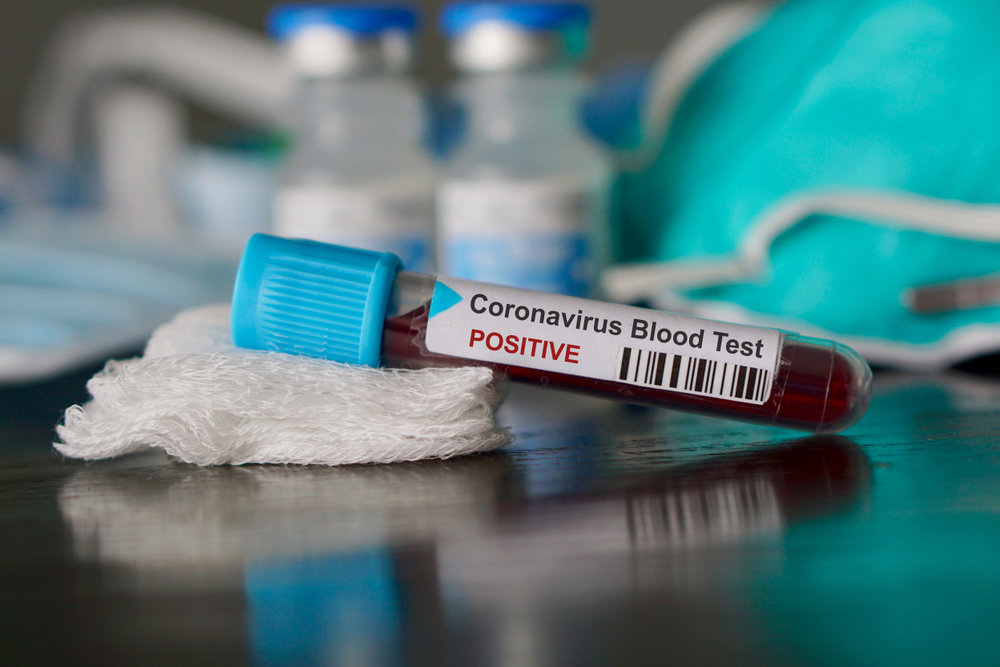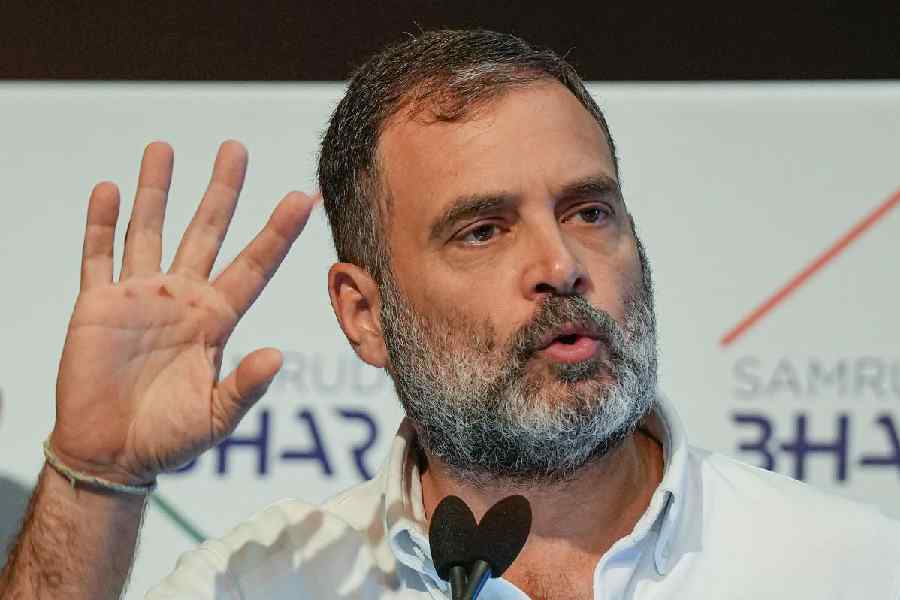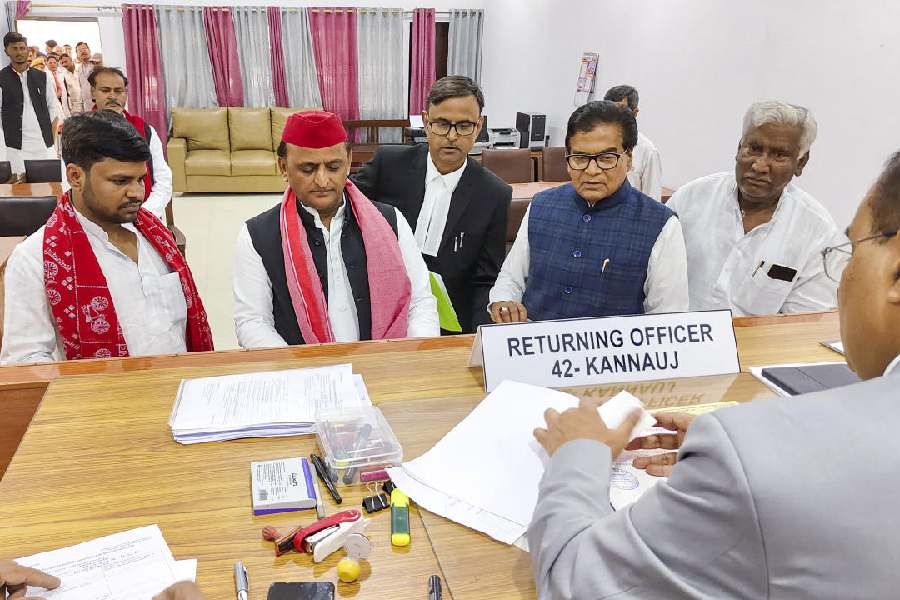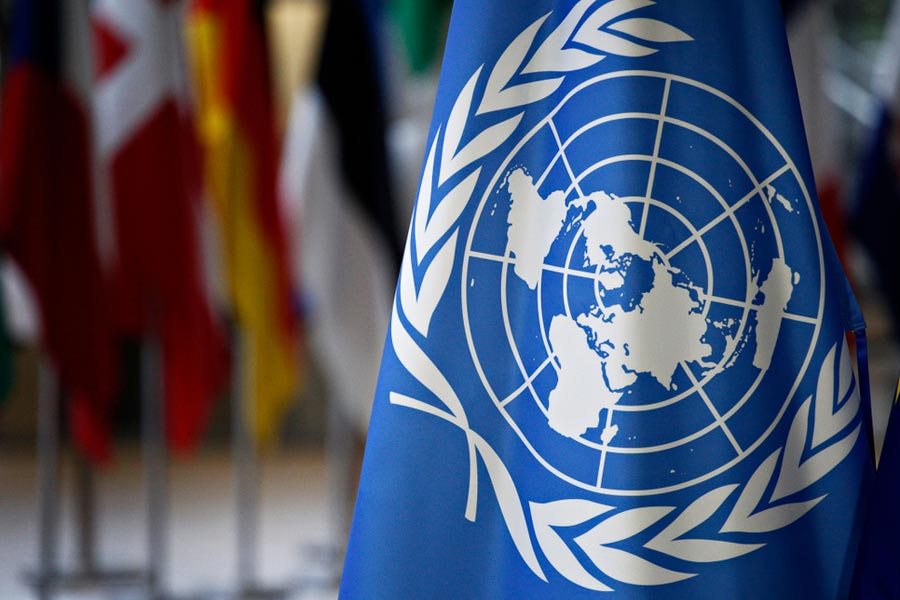The number of Covid-19 cases recorded in India crossed 1,000 on Sunday with the Union health ministry confirming 107 new patients and eight more deaths.
The ministry also announced plans to identify “emerging hotspots” of the outbreak in the country to implement “cluster containment” strategies there.
The cumulative count of coronavirus patients in the country since local transmission of the virus began in early March rose to 1,024 at 7.30pm on Sunday from 917 on Saturday, the ministry said. Ninety-five patients have recovered and been discharged and 27 have died.
Maharashtra and Kerala account for more than 180 patients each, while Gujarat, Karnataka, Rajasthan, Telangana and Uttar Pradesh have more than 50 patients each.
“We’re looking at high case loads to identify emerging hotspots for rigorous implementation of cluster containment strategies there,” said Lav Agarwal, a joint secretary in the health ministry.
Cluster containment involves intensive efforts to identify all the possible contacts of a cluster of cases over a geographical area where the cluster has emerged, place them under home quarantine and test all those with symptoms. The goal is to prevent the cluster from transiting into community transmission.
The Indian Council of Medical Research had said on Saturday it had detected “early signals” of community transmission in some sites, without specifying the locations. A senior official said the likeliest sites were in states with the highest case loads, such as Maharashtra and Kerala.
Agarwal said the health ministry had written to all the states on Saturday iterating its earlier call to establish dedicated exclusive hospitals to treat patients with coronavirus disease so that patients do not intermingle.
“Identifying isolation beds within the indoor wards of a hospital could lead to intermingling of patients and runs the danger of the hospital itself becoming a hub for transmitting the disease,” Preeti Sudan, the health secretary, cautioned in her letter to the chief secretaries of the states.
Jammu and Kashmir on Sunday confirmed its second death in the Valley, amid concerns expressed by a doctors’ body that the patient might represent the first instance of community spread of the infection in the Union Territory.
A 55-year-old man who had been diagnosed with Covid-19 died on Sunday, government spokesperson Rohit Kansal said. “Sad start to the day. Unfortunate demise of a coronavirus patient in Srinagar this morning,” Kansal tweeted.
On March 26, a 67-year-old preacher in Srinagar had become the first victim of the deadly disease.
The man who died on Sunday had a liver ailment but no travel history, suggesting he had contacted the virus locally, doctors said.
“This could be an instance of community spread of the virus,” said Nisar ul Hassan, president of the Doctors’ Association of Kashmir.
“He had no travel history. This is significant because it means the infection is spreading untraced in the local community,” Hasan said.
Community transmission is marked by an infection whose source is untraceable.
“The need of the hour is swifter and wider testing,” Hasan said, echoing demands from multiple health experts and virologists who have expressed concern that India -– even after expanding its testing criteria to include patients hospitalised with pneumonia -– is not testing widely enough.
The coronavirus tests are currently available at 113 government labs and 47 private labs approved by the ICMR. But India has thus far looked for the coronavirus in only around 35,000 people.
A senior ICMR scientist, Raman Gangakhedkar, said on Sunday that India had established a large testing network and was currently testing at only 30 per cent of its lab capacity. The ICMR has said that anyone who fits the testing criteria can get tested.










